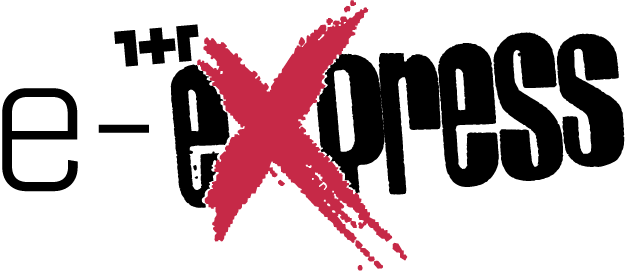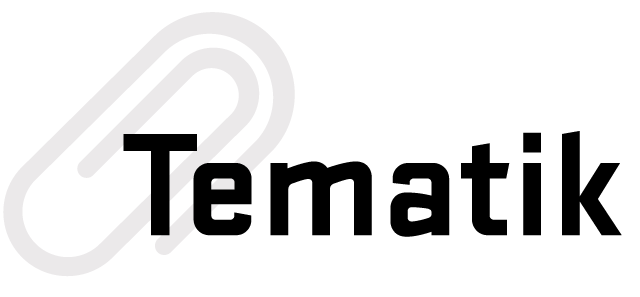What are the common traits of Hungary, Turkey and Russia, the three most socially divided European countries? How should the regimes of those countries are to be defined and the sources of their popular support examined? Péter Krasztev’s analysis throws light to the undercurrents of the antidemocratic climate prevailing.

It was a toward the end of the 1980s as well as a night of bar hopping, when we entertained the idea of what if, after receiving our degree, we all took to the countryside and just took a village over wholesale, all the important positions, and from there on the whole populace were under our command: from notary to doctor, pharmacist to school principal, from co-op head to party official, we would have the right crony for everything. For years it was one of our standing jokes, we even laugh at it today.
In another bar at roughly the same time, another crew of drinking buddies were toying with a similar notion, but took it to an entirely different level. They established a political party, and once they came to government, overpowered an entire country. One might say this was the Hungarian Tea Party, or considering Orbán’s personal passions, the Pálinka Party. Not long after, the political sciences came up with a name for this game, aptly dubbing it “state capture”. The Wikipedia article cites several examples to the phenomenon, notably South Africa, Latin America, Bulgaria and Hungary. Proud countries we are.
Of all the narratives surrounding illiberalism, perhaps the idea of the “mafia state” is easiest to grasp. Expounding the thesis of state capture, this concept asserts that ideology only serves as a blind for an illicit family business, whereby an authoritarian state keeps everyone but the padre’s inner circle away from economic resources.
In truth, the Fidesz story is a tad subtler, but to the onlooker this might be a good entry point for interpretation. Though many have forgotten today, but as fledgling young democrats, Fidesz had declared bridging the divide of Hungary’s national divide as one of their main priorities, hence their “children of divorced parents” tagline. This not only implied a rejection of their parents’ generation’s dichotomies of traditional-urban and Eastern-Western, but even a choice between the political left and right. The first illiberal turn was their abandonment of the mission to integrate Hungarian society, opting instead to win over the rightwing conservative electorate in the mid-‘90s.
The final touch to complete this turnaround came in the spring of 2002, when in his March 15th speech commemorating the Hungarian Revolution of 1848-49, Viktor Orbán called on his followers –all true Christian Hungarians, the Nation– to continue wearing their tricolored rosette pins marking the remembrance until the day of the elections, three weeks later. Thus everyone learned the political and ideological affiliation of his/her neighbors, friends and colleagues. The old trench was re-dug, and drawing in a segment of society into his matrix, Orbán laid the foundation for his 2010 rise to power.
“Illiberal democracy”
Viktor Orbán first announced “illiberal democracy” in June 2014. By then, public discourse was using liberal and liberalism as slurs, synonymous with treason, godlessness, foreign agency, or in the more radical government media used simply as a euphemism for Jewish. In intellectual and professional circles, it was a cliché how starting from 2010, Fidesz pursued illiberal policies/ideals/actions etc. Even before the 2010 power take, political philosophers and other analysts have turned out over a hundred studies, books and expository essays that establish ideas, theories and categories to interpret the situation at hand. If Marx were right about quantitative accumulation giving way to qualitative shift, such a massive (over)production of knowledge should have sparked a revolution ages ago. Perhaps he was wrong after all.
Of all the narratives surrounding illiberalism, perhaps the idea of the “mafia state” is easiest to grasp. Expounding the thesis of state capture, this concept asserts that ideology only serves as a blind for an illicit family business, whereby an authoritarian state keeps everyone but the padre’s inner circle away from economic resources. Others blame the “treachery of the elites” for the decline in democracy. Jaques Rupnik and others in the same vein argued the “political polarization”, which –grossly simplified– asserts that rogue norm-defying politicians have violated the accepted “liberal consensus” that characterized the bipartisan political sphere since 1989, and their concentration of power had led the economic elite into state dependency, cutting off their competitors from external support. This in turn led to the rise of populism, and the vanquishing of political foes.
System-critical anti-capitalists however attribute the triumph of illiberalism to the crisis of global capitalism. They consider the Fidesz regime a brand of “authoritarian illiberalism” that uses nationalist rhetoric to strengthen the position of the national bourgeoisie. Even the most permissive critiques see a form of the Far-Eastern “developing state” concept unfold.
Pushing this argument further, we come to the concept of “failing liberalism”, represented by Ivan Krastev for example. According to Krastev, liberal democracy has failed to deliver on its economic promise, while exacerbating poverty and financial iniquity. Those arguing for liberalism’s global crisis also add that newly established institutions are inflexible and impersonal, serving to estrange people from basic democratic values. Proponents of the historical-cultural approach follow a different line of argument to draw similar conclusions, namely that Western-inspired liberal institutions are left devoid of content, with neither “Goulash communism” or Horthyist autocracy [1] yielding enough democratic materiel to furnish them.
“Hybrid regime”
International writers are following their lead, often citing nationalist-antisemitic history and its perceived return in illiberal populism’s rise to success. System-critical anti-capitalists however attribute the triumph of illiberalism to the crisis of global capitalism. They consider the Fidesz regime a brand of “authoritarian illiberalism” that uses nationalist rhetoric to strengthen the position of the national bourgeoisie. Even the most permissive critiques see a form of the Far-Eastern “developing state” concept unfold in its étatist, protectionist and economy-centralizing pattern, all aiming to boost international competitiveness. But the greatest success story of political science ideas is that of the “hybrid regime”, coined by American analysts Way and Levitski in 2010.[2]
According to Hungarian politician and sociologist András Bozóki, while power has retained the decorum of a democracy, and institutions appear to be functioning, below the surface the structure had been altered extensively to serve the purposes and interests of those in power. The elections are one such “Potemkin village” [3], formally free, but manipulated and gerrymandered using a new election law. Another is the Constitutional Court, Hungary’s highest court, formally independent in its rulings, but made up of members delegated by the ruling government party. Then there is the State Attorney General, nominally independent, but a party member nonetheless; and the Courts of Law, which are overseen by a government agency; the public media, which is an instrument of licentious propaganda… It is not my ambition to compile a complete list of criminal charges here, it suffices to be living in their midst.
Perhaps the association first strikes one as far-fetched, but the expression “hybrid” had already appeared in a similar context back in 1979, in a book by a Russian social historian by the name of Alexandar Ahiezer. A liberal thinker all but forgotten today, he used the same term to denote an attitude that had since come to post-communist prominence, which he described as follows: “besides being liberal, it be mainly utilitarian, and variations of these themes that will be integrated with traditionalism.” One of the key words of his magnum opus of over 1000 pages is the term “splitting”, notably the cleaving in two of Russian society at its every major historical event –accession to Christianity, the “difficult times” and the reforms of Peter the Great, the rural-urban schism of the 19th Century, and the Westernist (zapadnik) – traditionalist (potshevnik) confrontation, down to the “great October tragedy”.
The expression “hybrid” had already appeared in a similar context back in 1979, in a book by a Russian social historian by the name of Alexandar Ahiezer. He used the same term to denote an attitude that had since come to post-communist prominence, which he described as follows: “besides being liberal, it be mainly utilitarian, and variations of these themes that will be integrated with traditionalism.”
Unlike other societies, Russia has so far seen no integrative processes emerging to ease these schisms. These phenomena return in historical cycles, and one might picture this as a sort of Mendeleev-table, where future cells are still left empty, but their main characteristics are already predictable, and in hindsight –as the related quote illustrates– these predictions turn out accurate. This same logic would permit the predicted, if obviously un-named, authoritarian hybrid system of Putin’s another year or two. The manuscript was confiscated by the KGB in 1982, but the author spent another eight years on its reconstruction, so it could finally be published in 1991.
Distinction between tradition and heritage
A dedicated liberal scientist till the end, Ahiezer was called on for my own story only considering how he drew a precise distinction between tradition and heritage, despite the fact that nobody was discussing trend patterns or memes back then. Immediately, this puts the whole issue in a different dimension, namely why it was specifically in the three most socially divided European countries that illiberalism prevails: in Hungary, Turkey and Russia. Wherever the idea of empire (and let’s not even begin to contemplate its reality in our particular case) has such a strong distorting effect on self-image as to actually obstruct coming to terms with the past, there a well-tuned “politics of memory” can be always be used to emotionally manipulate the majority toward any desired aim. And yes, all of the political scientists’ half-truths are indeed correct and on the mark, the process does require bad politicians, an ineffectively communicating and purportedly liberal elite, an increase in social inequality; but all this has only scant bearing on affect, desires, dreams, and fears.
In a culturally divided country, we have two of everything: two academies of the arts, two writer’s guilds, two respective associations of jazz music and theater, even two distinct civil societies: “ours” and “theirs”. Living here, I might as well interpret the words of cognitive psychologist and linguist George Lakoff, originally pertaining to the US: “The divide is located in our brains –in the ways Americans understand the world. There we find two competing modes of thought that lead to contradictory ways of governing our country, one fundamentally democratic and one fundamentally antidemocratic.” [4]

Rationality and emotions
It may sound eerily essentialist, but even one of the freest thinkers in the world, historian Yuval Harari encourages us to revise liberalism, giving clear indication of where it has lost its allure and efficiency in casual politics. According to Harari, liberalism thrives in the myth of rationality, whereas we human beings, physiologically, down to our neurons, are fundamentally irrational creatures. “Referendums and elections aren’t about rationality, they’re about emotions,” he affirms, and it follows that those who aspire to power have only to provide what we along with Lakoff may call the “antidemocratic” side with a coherent narrative. Irrespective of whether the narrative is factually true or not, people will regurgitate the newly restructured fairytale as their own, be that a narrative of Garden Hungary, Ferryboat Hungary, Bridge Hungary etc.
There are plenty of authors whose visions we can cherry-pick, and in the age of post-truth, anything goes, that is, anything can be called into motion as a truth. We can of course scorn our fellow citizens for their mythomania of turul-flying [5] Central Asian “ethnic kinship”, runic Hungarian roadsigns, and fantasies of national unity; yet we too are nothing if not believers: in the rationality of the Enlightenment, with entirely counterfactual views regarding our own rationality. As Lakoff asserts, “The proper emotions are rational”, so we tend to have a hard time dealing with this. Yet even in 1979, Ahiezer cautioned: “One mustn’t forget, that in terms of aggregate human history, liberal values are but a thin veneer of ice cover over the deep waters of traditionalism.” This is indeed a notable piece of intuitive insight: the ice has given way under us, and as ideologists trawl the depths for new narratives, or as Harari puts it, “the vacuum left by liberalism’s collapse is slowly being filled with nostalgic fantasies of a national golden age”.
Ahiezer drew a precise distinction between tradition and heritage, despite the fact that nobody was discussing trend patterns or memes back then. Immediately, this puts the whole issue in a different dimension, namely why it was specifically in the three most socially divided European countries that illiberalism prevails: in Hungary, Turkey and Russia.
Since political struggle is no longer about competing programs and visions but a matter of competing for human brains, democracy is on a losing streak. “Yet progressives have, without knowing why, given conservatives an enormous advantage in the culture war. The radical conservatives seek and have already begun to introduce: an authoritarian hierarchy based on vast concentrations and control of wealth; order based on fear, intimidation, and obedience; a broken government; no balance of power; priorities shifted from the public sector to the corporate and military sectors; responsibility shifted from society to the individual; control of elections through control of who votes and how the votes are counted; control of ideas through the media; and patriarchal family values.” [6]
This was published in 2008, whereas Fidesz came to power in 2010. And I am quoting Harari as, among other things, he is one of Orbán’s favorite authors, and according to inside sources, the prime minister has requested his personal consultation. He seems to be following the script closely in his work. Perhaps it might considerably benefit the democratic side to pay at least half as much attention to their ideas, as is reciprocated. And let’s just drop that old line of how it’s “our side” that produces knowledge. It may well be so, but it is still “their side” reaping the benefits.
“Paranormal behavior”
While they all appear to follow a similar logic, it is hard to track the extent to which these authoritarian regimes borrow from one another or merely share common typological features. Hailed as Putin’s own Rasputin, Russian politician and businessman Vladislav Surkov is known for postmodern, or rather post-truth political disinformation, and has published his manifesto this year in February called Putin’s Long State. All the textual overlap with Orbán’s typical speech rhetoric (e.g. we have rid ourselves of the worrisome weight of the failing West, this government has embodied the nation’s true self, we have come to be united at last, we are fulfilling our historic mission, a wake-up call to Europe, etc.) is far less surprising than the title, which appears to be a message directly to Ahiezer, dead ten years and all but unknown in his homeland.
Later in the manifesto there are multiple allusions to Russian history, admittedly in a special interpretation, but following the pattern of Ahiezer’s cycles. Surkov neglects to mention the historian by name, but neither does he cite Harari or Lakoff when turning their arguments against liberalism as the symbol of the West. He takes careful note that Western analysts’ fury at the mystifying and paranormal behavior of Russian voters, something that they attribute to populism, for their lack of a better word. Yet they should accept that gradually and in a growing number of countries, this is and will be the norm in voters’ behavior.
According to Yuval Harari, liberalism thrives in the myth of rationality, whereas we human beingsare fundamentally irrational creatures. “Referendums and elections aren’t about rationality, they’re about emotions,” he affirms, and it follows that those who aspire to power have only to provide what we may call the “antidemocratic” side with a coherent narrative. Irrespective of whether the narrative is factually true or not, people will regurgitate the newly restructured fairytale as their own.
The term paranormal is a careful choice, and is not placed in quotes: the paranormal indicates something beyond mere voter irrationality, and points toward the occult, namely the mystical spiritual fellowship known in Russian as sobornost, which has been a central ideological pillar of Russian thought for centuries. I can almost see this unique brand of spirituality flooding forth from Russia, much as the ideas and practice of international proletariat revolution had back in the day. I can all but feel how the KGB-affiliated International Investment Bank associates, with their diplomatic immunity, will also stand for this mentality…
Obviously, everyone’s main concern is what there is to hope for. There was only one Ahiezer, and he’s had his say, and making that same prognosis would not behoove any other social scientist. As a matter of fact, those citizens who do not bow to the Fidesz creed have tried everything, and everything’s opposite as well, practically exhausting all available forms of resistance. From political parties to grassroots initiatives, environmentalists to armed forces, students to teachers, general internet users and most recently even trade unions, people have expended their ammunition and taken to the streets, chained themselves to various objects, made scandalous performances in parliament and on public media, occupied public spaces, wrote and sang their own songs, organized flash-mobs and gathered signatures – all these things took place in much the same vein they would have anywhere else, except for effecting any meaningful impact.
The question of a unified front
It’s getting to the point where traditional churches are about the only institutions that haven’t actively mobilized against the government, and I wouldn’t wager on their revolutionary spirit, considering the present state of affairs. At no point however, had all these independent efforts come together into a unified front. This is what the powers that be refer to as the “central field of power”: keep your faithful followers in a united camp, keep up a constant communication to stoke their dreams (of nationalism) and fears (of migrants, of Soros), but keep all the others at arm’s length, and most importantly: keep them separated and divided. That will prevent their joining forces, having at least as much aversion toward one another as to the very administration they want to topple.
All this comes at an enormous cost of both money and energy, but right now it is crucial for retaining their power: until the dozens of separately valid and rational arguments and aspects fail to unite in a shared ambition, the powers that be can rest assured that all their absurd and corrupt gestures will only defy fragmented interests.
Where the matrix ends?
It would be nice to bring this narrative to an optimistic and reassuring conclusion. Maybe by quoting Lincoln, “You can fool all the people some of the time, and some of the people all the time, but you cannot fool all the people all the time.” And yet in post-truth times, this notion may be appealing, but it no longer rings true. The Pálinka Party has seeped its way into the institutions and the economy, fermenting its own version of reality, with an alternative history, beliefs and rituals.
More and more people see less and less clearly where the matrix ends, and what lies beyond. Slovakia offers a ray of hope with the success of someone as integrative as Caputová, or the same can be said about the relatively recent developments after the local elections in the Central European countries and Istanbul, but ousting the elite can be more readily envisioned in a less traumatized society, with its civil society still left intact as well as its independent media. Be that as it may, Harari might turn out right after all, and those with too much power might become blind to the reality they had themselves devised, bringing the whole house of cards tumbling down. This may seem like a hopeful outlook. Or is it?





